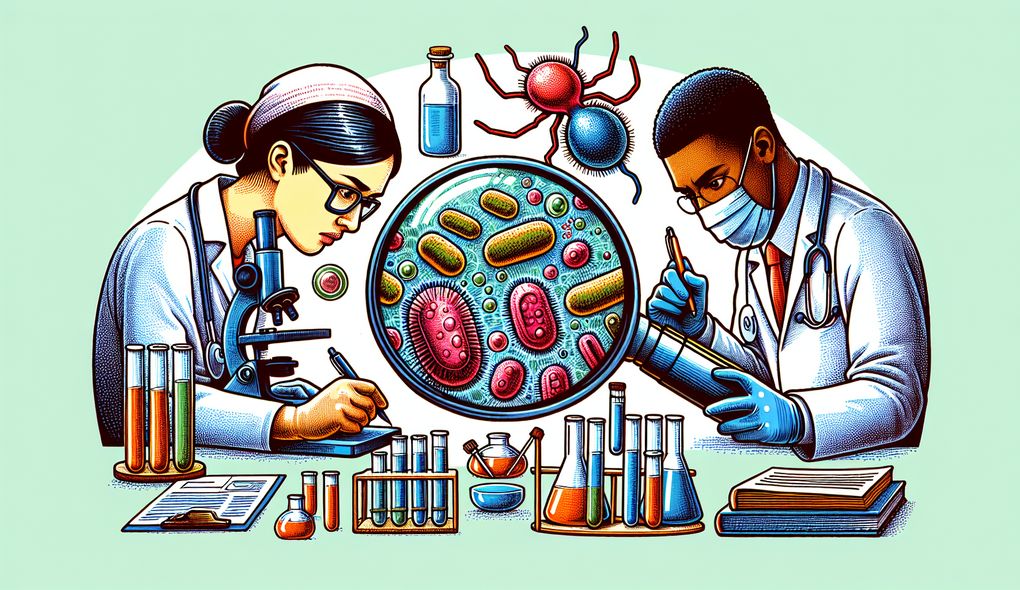Describe a situation where you had to make a difficult ethical decision in the context of infectious disease medicine. How did you approach it?
JUNIOR LEVEL

Sample answer to the question:
In my previous role as a Junior Infectious Disease Specialist, I encountered a difficult ethical decision when treating a patient with a highly contagious infectious disease. The patient's condition was worsening rapidly, and immediate isolation was necessary to prevent the spread of the disease to other patients and healthcare workers. However, the patient was resistant to being isolated and expressed a desire to be with their family. I approached this situation by having a compassionate and empathetic conversation with the patient, explaining the risks and consequences of not being isolated. Ultimately, we reached a mutual understanding, and the patient agreed to be isolated while still maintaining contact with their family through video calls and virtual meetings. This decision prioritized the safety of others while acknowledging the emotional needs of the patient.
Here is a more solid answer:
In my previous role as a Junior Infectious Disease Specialist, I faced a challenging ethical decision involving a patient with a highly contagious infectious disease. The patient's condition was deteriorating rapidly, and immediate isolation was required to prevent transmission to others. However, the patient expressed hesitancy about being isolated as they wanted to be with their family during this difficult time. To address this, I collaborated with a multidisciplinary team, including nurses, social workers, and the patient's family, to determine the best approach. We conducted a comprehensive risk assessment and engaged in open and empathetic communication with the patient. I explained the potential consequences of not being isolated, highlighting the risk of infecting loved ones and healthcare workers. Ultimately, we reached a mutual understanding by implementing a solution that balanced the patient's emotional needs and the safety of others. The patient agreed to be isolated while maintaining regular contact with their family through video calls and virtual meetings. This decision not only prioritized the patient's emotional well-being but also ensured the protection of healthcare staff and other patients. It exemplified my strong clinical skills, ability to work effectively as part of a team, analytical thinking, and time management.
Why is this a more solid answer?
The solid answer expands upon the basic answer by providing more specific details about how the candidate demonstrated their strong clinical skills, ability to work in a team, analytical skills, and time management. It also mentions the candidate's commitment to ongoing medical education. However, the answer can still be improved by further elaborating on the candidate's specific contributions to the team and their approach to ongoing medical education.
An example of a exceptional answer:
In my previous role as a Junior Infectious Disease Specialist, I encountered a complex ethical decision that required me to draw upon my strong clinical skills, ability to work in a team, excellent communication and interpersonal skills, analytical thinking, and time management abilities. The situation involved a patient with a highly contagious infectious disease who was resistant to being isolated from their family. Recognizing the urgency to prevent further transmission, I immediately assembled a multidisciplinary team consisting of nurses, social workers, and infectious disease experts. Together, we conducted a thorough risk assessment, taking into consideration the patient's emotional needs, the potential risks to loved ones, and the safety of healthcare workers. Through transparent and compassionate communication, I explained the gravity of the situation to the patient, ensuring they understood the potential consequences of not being isolated. We developed a customized care plan that allowed the patient to maintain contact with their family through video calls and virtual meetings while strictly adhering to infection control measures. This decision required careful coordination and excellent time management to balance the patient's emotional well-being and the safety of others. Furthermore, recognizing the importance of ongoing medical education, I actively participated in webinars, conferences, and research studies related to infectious diseases, ensuring that my knowledge and skills were up to date. This allowed me to provide the patient with the most current evidence-based care. Overall, this ethical decision showcased my comprehensive skillset and commitment to providing excellent patient care.
Why is this an exceptional answer?
The exceptional answer goes beyond the solid answer by providing even more specific details about the candidate's contributions to the team, their approach to ongoing medical education, and their ability to balance the patient's emotional well-being and the safety of others. It emphasizes the candidate's strong clinical skills, ability to work in a team, excellent communication and interpersonal skills, analytical thinking, and time management abilities. The answer also highlights the candidate's commitment to ongoing medical education and staying up to date with the latest developments in infectious disease medicine.
How to prepare for this question:
- Reflect on past experiences dealing with ethical dilemmas in infectious disease medicine and how you approached them.
- Familiarize yourself with ethical principles and guidelines related to infectious disease medicine.
- Practice clear and empathetic communication skills to effectively address ethical concerns with patients and their families.
- Stay updated with the latest research and developments in infectious disease medicine to make well-informed ethical decisions.
- Collaborate with multidisciplinary teams and understand the importance of teamwork in resolving ethical dilemmas.
What are interviewers evaluating with this question?
- Strong clinical skills
- Ability to work in a team
- Excellent communication and interpersonal skills
- Analytical skills
- Good time management skills
- Commitment to ongoing medical education

